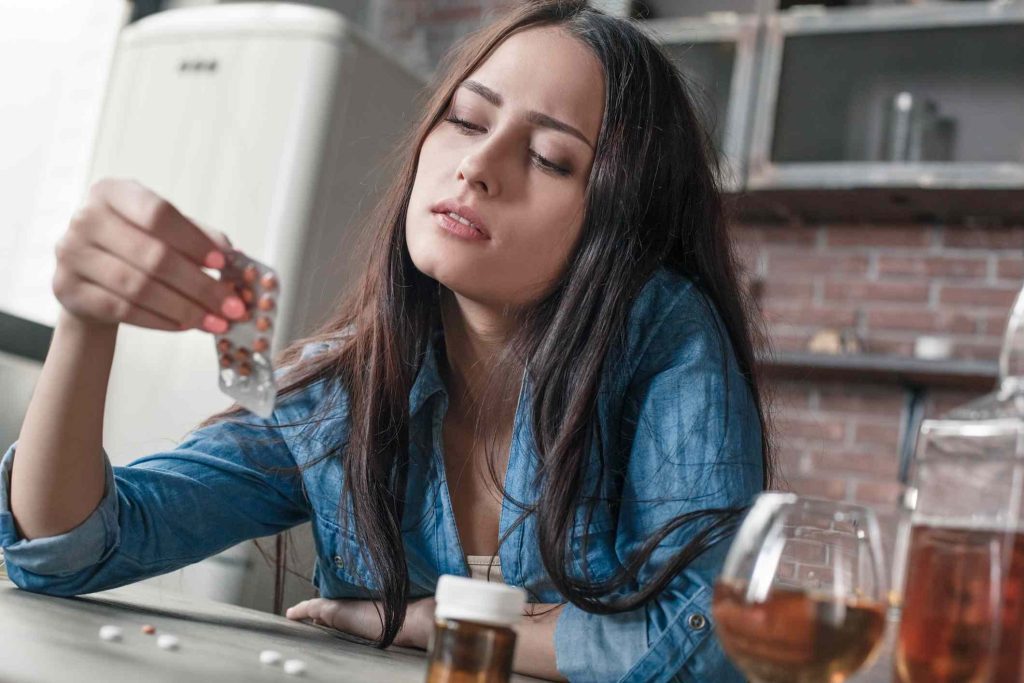Yes, whilst it is not recommended to drink alcohol whilst taking a course of amoxicillin, it is not considered dangerous when consumed in moderation.
Whether you should drink any alcohol at all whilst taking amoxicillin depends on your personal circumstances. Alcohol won’t stop it from working, but it could delay your recovery and make the side effects associated with amoxicillin worse.
For this reason, it is recommended that you avoid alcohol whilst taking amoxicillin.
Amoxicillin is a type of antibiotic medication that is commonly prescribed for the treatment of bacterial infections such as ear, throat, urinary and chest infections (including pneumonia). They do not work in treating virus-based illnesses and only work if the full course of medication is taken as prescribed.
The drug is usually very well tolerated by most, but it can cause some unpleasant side effects. It is also safe to take during pregnancy.

Around 1 in 10 people will suffer from one or more of the common side effects. If you do suffer from any of these side effects, you should avoid alcohol. Please contact your doctor if anything becomes troublesome.
A tiny percentage of people (around 1 in 1000) may suffer from more serious side effects.
All of these more severe side effects indicate intolerance to the medication or an allergic reaction. Medical help should be sought without delay.
| WARNING – The side effects reported above in red are symptoms of an allergic reaction to amoxicillin and can occur in as many as 1 in 15 people. Anaphylactic shock can kill within minutes. In the event of any breathing problems, swelling, or severe rashes occurring, emergency services should be contacted immediately. |
Amoxicillin also causes disturbances to good bacteria in the gut and body. This effect can last for a few weeks after finishing a course of amoxicillin, leading to prolonged gastrointestinal discomfort and, in some cases, the development of Thrush (a yeast type fungal infection)
Drinking alcohol can also prolong the side effects; alcohol also disturbs healthy bacteria in the body and prevents the absorption of nutrients.
Taking a good quality probiotic, eating healthily and avoiding alcohol can help to restore your body’s natural balance more quickly.
Before taking Amoxicillin, advise your doctor if you suffer from any of the following:
It is common knowledge amongst clinicians that there is a strong association between excessive alcohol use and compromised immunity.
Drinking alcohol frequently and to excess can make a person more susceptible to pneumonia, respiratory infections, sepsis, certain cancers and alcoholic liver disease. It can also cause complications with wound healing and cause postoperative complications and infections.
This is why you mustn’t drink more than the Chief Medical Officer’s safe drinking guidelines of no more than 14 units of alcohol spread evenly over a week, especially whilst taking amoxicillin.
If you have a severe infection, a respiratory-related infection or a post-operative infection, alcohol should ideally be avoided altogether to ensure the best chance of making a full recovery.
If you are thinking about taking alcohol and amoxicillin, it is recommended that you wait at least 72 hours after finishing a complete course before drinking alcohol. You should also ensure that you have completely recovered from your infection.
If you continue to suffer from any of the side effects once you have finished the course of medication, you should wait until the side effects subside. Drinking alcohol on top of suffering from amoxicillin side effects will only prolong them and make them worse.
Being alcohol dependent is a serious medical health condition, which means that it is not safe for you to suddenly stop drinking without a full medical alcohol detox.
If you are alcohol dependent, you should advise your GP at the time of prescribing. Additional monitoring may be required throughout the course of your medication, or a different antibiotic or stronger course may be considered more suitable.
Those who suffer from an alcohol use disorder (AUD) will also find it very difficult to completely abstain or moderate their alcohol consumption whilst taking a course of amoxicillin.
Binge drinking whilst taking amoxicillin can severely compromise your immune system for 24 hours post-alcohol consumption.
Alcohol dependence and alcohol addiction are at the most severe end of the alcohol use disorder spectrum. Both are considered life-threatening, and both require special treatment to overcome.
If you need professional help with an alcohol problem, please call and speak with us at Rehab Guide today. We are experts in treating alcohol use disorders and can ensure that you access fast and effective treatment as a matter of urgency.
References:
1. Amoxicillin: antibiotics to treat bacterial infections – NHS https://www.nhs.uk/medicines/amoxicillin/
2. Alcohol and the Immune System Sarkar, Ph.D., D.Phil., M. Katherine Jung, Ph.D., and H. Joe Wang, Ph.D. – https://www.ncbi.nlm.nih.gov/pmc/articles/PMC4590612/
3. https://www.healthline.com/health/antibiotics-alcohol#antibiotics-and-alcohol